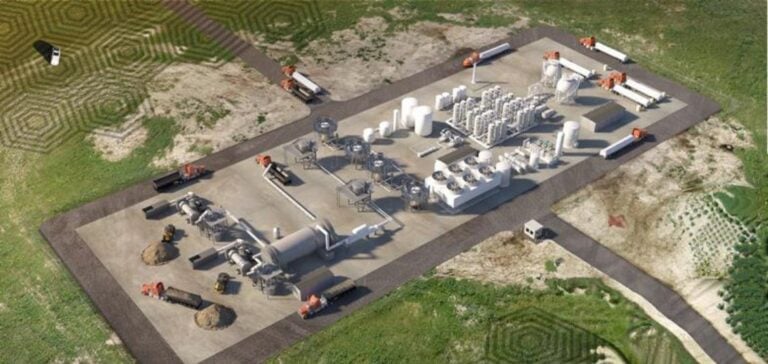Raven SR, specialized in sustainable hydrogen technologies, initiates its first European center in Zaragoza, Spain.
This initiative uses advanced steam and CO2 reforming technology to transform organic waste into hydrogen, positioning Aragon as a key player in renewable energy.
Raven SR ‘s new facility has been recognized as a “Project and Investment of Autonomous Regional Interest” by the Ministry of Presidency, Economy and Justice of the Government of Aragon.
This status is reserved for initiatives of significant importance to the region’s economic, social and territorial development, enabling faster and simpler administrative procedures.
In the last ten years, only a handful of projects in Spain have obtained this designation, which testifies to the importance of this achievement.
Technology and Environmental Impact
Raven SR’s technology is unique.
The plant is scheduled to be operational by 2026, producing 5,250 kg of hydrogen per day, or around 1.8 million kg per year.
This non-combustion technology uses a thermal and chemical reductive process that stands out for its efficiency and low environmental impact.
Unlike other hydrogen production methods, steam and CO2 reforming requires no fresh water, and consumes less than half the energy of traditional electrolysis.
Matt Murdock, CEO of Raven SR, points out that this initiative reinforces Aragon’s commitment to sustainable technologies.
“We are honored that the Government of Aragon has granted us this designation. We’re delighted to be developing Spain’s first waste-to-hydrogen facility, demonstrating our commitment to innovative energy solutions.”
European Support and Financing
The company has also received significant financial support from the European Commission, which has granted a grant of 2.4 million euros in 2022 for the launch of the plant.
In addition, Raven SR has secured a further 1.4 million euros from Spain’s Ministry for Ecological Transition and Demographic Challenge, through the Perte H2 Cadena Valor C2 program, finalized in May this year.
Raven SR’s ability to generate its own energy on site is a major asset, reducing its dependence on the electricity grid.
The plant’s modular design enables scalable production of renewable hydrogen and synthetic liquid fuels from local waste.
This approach helps to reduce landfill waste and the emissions associated with transport and landfill.
Perspectives and reflections
This project is part of a wider initiative to develop Hydrogen Valleys in Europe, aimed at creating regional clusters for the production and use of hydrogen.
By collaborating with Spain and the European Union, Raven SR is actively participating in the energy transition, offering a sustainable alternative to fossil fuels while reducing organic waste.
The installation of this facility in Zaragoza marks an important milestone for renewable energies in Europe.
It highlights the potential of innovative technologies in waste management and hydrogen production.
This achievement could inspire other regions to adopt sustainable, local energy solutions.






















